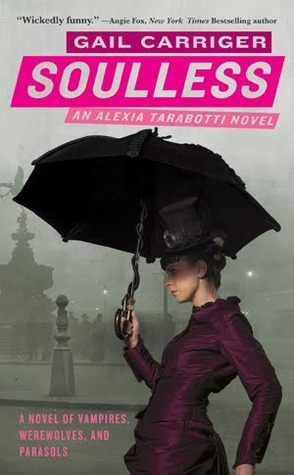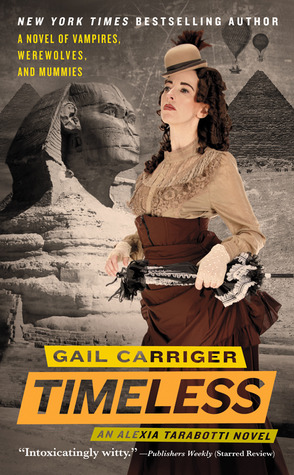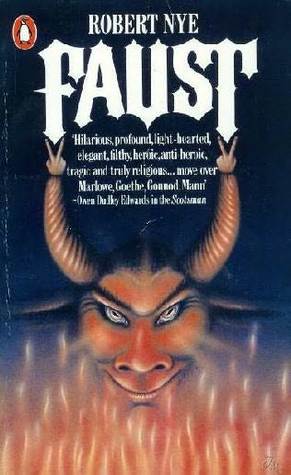I’m now three books
into the 2015 Reading Challenge, between them ticking off 9 challenges.
Faust by Robert Nye
First published 1st
March 1981
Challenges covered:
-
A book with a one-word title
-
A book set in a different country
-
A book at the bottom of my to-read
list
-
A book with magic
-
A book by an author I’ve never read
before
-
A book I own but have never read
It’s probably not
surprising to you that I inherited my bibliophile tendencies from my parents.
Combine that up with my step-mum being an English teacher, and you’ll appreciate
their house is rather full of books. So full, in fact, that periodically they
need to clear their shelves and some of the books come the way of Husbit and I.
Faust is one such book and has been
sitting on my shelf, unread, for several years. Given this and its one-word
title, I thought it was an ideal first book to read for the challenge.
One of the reasons
I’d put off reading this book is that I’ve never read the original Faust, nor seen any of the films or
plays based upon it. Reading Nye’s story, I decided this didn’t matter – I’m
not sure how close the two are, but the story didn’t suffer for me not having a
clue. It has made me more motivated to read the original, however, and I’ll
probably reread this once I’ve done so.
The tale unfolds in
the form of a journal kept by Christopher ‘Kit’ Wagner, Faust’s apprentice. It
starts with him telling his own history and what he knows of Faust’s, before becoming
a diary of increasingly bizarre events: to me, it was never clear whether these
events were real or whether Faust was mad and his madness infecting Kit. The
story follows their journey to Rome, either for Faust’s salvation or damnation,
depending whether it is Jane or Kit he speaks to (and are Jane and Kit actually
the same person?)
The writing flows
quickly and is easy to read, for all the story isn’t a straightforward
narrative. The book made me laugh in places, but is not a book I feel could fit
the ‘funny book’ challenge on the list.
I’d recommend this
to anyone who enjoys reading (although there is some rather lurid sex and
strange scenes in it), but it probably isn’t a book for someone who doesn’t read
widely and often.
Published 1st
July 2011 and 1st March 2012
Challenges covered:
-
A funny book
- A book by a female author (it annoys
me that this is a category in the challenges, because it implies that female
authors are in some way specialised or might only be read if one is prompted –
the idea of the challenge is to get people out of their comfort zones, after
all – but there are so many fantastic and very popular female authors out there
that, without the “book by a male author” and “book by a gender queer author”
additional categories, this bothered me)
-
A book with a one-word title
-
A book set in a different country (Timeless only, and not entirely)
-
A book a friend recommended
 Towards the end of
last year, I went on a rereading binge, starting with The Historian by Elizabeth Kostova, moving onto Night Watch, Day Watch and Twilight Watch
(mostly so I would finally get around to reading the fourth in the series, Last Watch) by Sergei Lukyanenko, and
then the first three in Gail Carriger’s ‘Parasol Protectorate’ series: Soulless, Changeless and Blameless.
This inspired me to treat myself to books four and five as a late Christmas
present – I really wanted to know how the series ended.
Towards the end of
last year, I went on a rereading binge, starting with The Historian by Elizabeth Kostova, moving onto Night Watch, Day Watch and Twilight Watch
(mostly so I would finally get around to reading the fourth in the series, Last Watch) by Sergei Lukyanenko, and
then the first three in Gail Carriger’s ‘Parasol Protectorate’ series: Soulless, Changeless and Blameless.
This inspired me to treat myself to books four and five as a late Christmas
present – I really wanted to know how the series ended.
I do have a few
issues with these books, particularly in the way they are written. They are
Young Adult fiction and the writing style reflects the stereotype of this: very
simple and with unnecessary writing – by which I mean, we will be told
something in the text that a character will then repeat in speech. It can be a
little grating at times, but overall doesn’t detract from the stories.
What I find more
annoying, however, is the sound of American English from the English
characters: particularly the word ‘ladybug’. They are ladybirds. It grated in Blameless, but I hoped the creatures
would be left behind for the later books. Sadly, not so. I still haven’t forgiven
Stephen King for allowing the English character in The Langoliers to say “airplane” instead of “aeroplane” and it’s
over 15 years since I read that, so it took some work to get past the same sin in
these books. I know it’s very petty, but it does break the fourth wall for me
and detracts from my enjoyment. (I once read something by Neil Gaiman that I
now can’t find, in which he justified having his English translated into
American English for things like that and for idioms and colloquialisms that
would work better in one language than the other. I didn’t mind that as such,
but felt aggrieved that no American author seems to feel the need to do the
same when their books come over here.)
 Finally, I don’t
agree with the quote proudly shown on the front of several of the books: “A
delicious rapier wit that recalls Jane Austen and P G Wodehouse.” To me, that
implies a subtlety to the humour and writing that is very much lacking. The
books are written to sound as though written in that era, but are too brash to
pass off as what the quote claims them to be.
Finally, I don’t
agree with the quote proudly shown on the front of several of the books: “A
delicious rapier wit that recalls Jane Austen and P G Wodehouse.” To me, that
implies a subtlety to the humour and writing that is very much lacking. The
books are written to sound as though written in that era, but are too brash to
pass off as what the quote claims them to be.
Still with me?
I really enjoy
these books.
The simplistic
writing style means they’re very quick and easy to read. The main character
(Alexia Maccon née Tarabotti) is fierce and not always nice (the way she treats
and constantly underestimates her friend Miss Tunstall, for instance), which makes
her more rounded and so more relatable. The humour may be more blatant than
implied, but it is still good humour that often leaves me chuckling out loud
despite being surrounded by strangers on a train.
 The setting is an
alternative Victorian London, replete with ghosts, vampires, werewolves and steampunk
paraphernalia. Alexia Tarabotti is ‘soulless’, the opposite, in many ways, of
the various undead types (termed supernaturals, whilst Alexia is a
preternatural). Should Alexia touch a supernatural, she renders them mortal for
the duration of the contact.
The setting is an
alternative Victorian London, replete with ghosts, vampires, werewolves and steampunk
paraphernalia. Alexia Tarabotti is ‘soulless’, the opposite, in many ways, of
the various undead types (termed supernaturals, whilst Alexia is a
preternatural). Should Alexia touch a supernatural, she renders them mortal for
the duration of the contact.
The first
book follows Alexia as she falls in love with and marries the werewolf Lord
Maccon against a backdrop of vampires and werewolves vanishing. This is
ultimately resolved and the next challenge the argumentative duo face comes
when supernaturals across London are rendered mortal, an affliction that moves
north and requires Lord Maccon to return to his former pack.
 The third book sees
them separated: as a werewolf, Lord Maccon cannot father a child, so when
Alexia discovers she is pregnant he kicks her out… Which didn’t sit right with
me. Not just because it’s a horrible thing to do – fiction often deals with
people doing or suffering horrible things – but because so much has been made
of how fierce Lord Maccon’s love is for her and also that he is mortal when
they touch… Nonetheless, an exciting tour of Europe follows, introducing and
building on several secondary characters and fleshing out the world.
The third book sees
them separated: as a werewolf, Lord Maccon cannot father a child, so when
Alexia discovers she is pregnant he kicks her out… Which didn’t sit right with
me. Not just because it’s a horrible thing to do – fiction often deals with
people doing or suffering horrible things – but because so much has been made
of how fierce Lord Maccon’s love is for her and also that he is mortal when
they touch… Nonetheless, an exciting tour of Europe follows, introducing and
building on several secondary characters and fleshing out the world.
Overall, I was a
little disappointed with the last two books. I may have found the motivation
for book 3 (Blameless) unlikely in
terms of Connall Maccon’s character, but the story itself was strong. This recurs
with the actions of some of the characters in Heartless and the story itself felt a bit too disjointed to
completely overcome that (although I found a heavily pregnant but active main
character refreshing). Timeless was
better in terms of continuity but still lacked something of the energy of the
earlier books.
 Throughout the
books, little bits of information about Alexia’s father, Lord Maccon’s former
pack and many of the secondary characters are given in a way that leaves you
hungry for more. The information was given in larger reveals in both Heartless and Timeless, and maybe this was part of why I felt the books weren’t
as strong. They finished the series adequately, but I couldn’t help feeling
they could have been much better.
Throughout the
books, little bits of information about Alexia’s father, Lord Maccon’s former
pack and many of the secondary characters are given in a way that leaves you
hungry for more. The information was given in larger reveals in both Heartless and Timeless, and maybe this was part of why I felt the books weren’t
as strong. They finished the series adequately, but I couldn’t help feeling
they could have been much better.

No comments:
Post a Comment